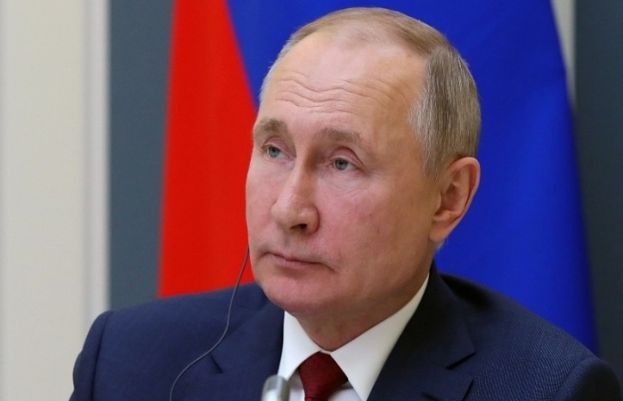
“No doubt it is a step in the right direction,” Putin said at the World Economic Forum summit being held virtually this year, addressing the body for the first time since 2009.
But the Russian leader warned: “The situation can still develop unpredictably and uncontrollably if we sit on our hands.” Earlier in the day 399 Russian lawmakers in parliament’s lower house, the State Duma, voted in favour of extending the agreement, with no votes against or abstentions. The upper house ratified the treaty extension later on Wednesday.
Putin submitted a bill extending the accord that both houses of parliament quickly ratified after the Russian leader and new US President Joe Biden held their first phone call Tuesday evening.
The New START treaty is the last remaining arms reduction pact between the former Cold War rivals.
The Kremlin hailed the extension of the pact for five years. “This is a good timeframe, which will allow us to work well — if the political will exists — to either further extend it or (agree) a new text of the agreement,” Kremlin spokesman Dmitry Peskov told reporters.
Signed in 2010, New START caps to 1,550 the number of nuclear warheads that can be deployed by Moscow and Washington, which control the world’s largest nuclear arsenals.
The agreement, which is due to expire on February 5, is seen as a rare opportunity for compromise between Moscow and Washington, whose ties have dramatically deteriorated in recent years.
Biden signalled a tough US stance on Russia in his phone call with Putin, raising concerns over human rights and “aggression” against Ukraine.
The US leader also raised a raft of worries about the Russian authorities’ treatment of opposition members, including the “poisoning of Alexei Navalny”, White House Press Secretary Jen Psaki said.
But the agreement to extend the New START pact raised hopes for greater stability between the world’s two most heavily armed nations, drawing a line under the uncertainty that entered under Donald Trump, whom Biden replaced last week.
The accord was signed by then-US president Barack Obama and his Russian counterpart Dmitry Medvedev and was seen as a key component of Obama’s efforts to “reset” ties with the Kremlin.
Still, Peskov stressed on Wednesday that major differences between Moscow and Washington remained, indicating that a new reset was out of the question. “Of course so far there are no conditions for a reset,” Peskov said.
“It is enough that the presidents yesterday stressed the need to continue dialogue, having noted the existence of rather serious disagreements,” he added.
Talks on the nuclear arms reduction agreement last year had stalled over Trump’s insistence that China also become a party to the pact, even though Beijing made clear it would not participate. The Trump administration voiced willingness for a one-year extension ahead of the deadline but talks broke down over US insistence on tougher verification that Russia has frozen its nuclear work.
source https://www.suchtv.pk/world/item/104167-russian-mps-vote-for-extension-of-n-treaty-with-us.html
No comments:
Post a Comment